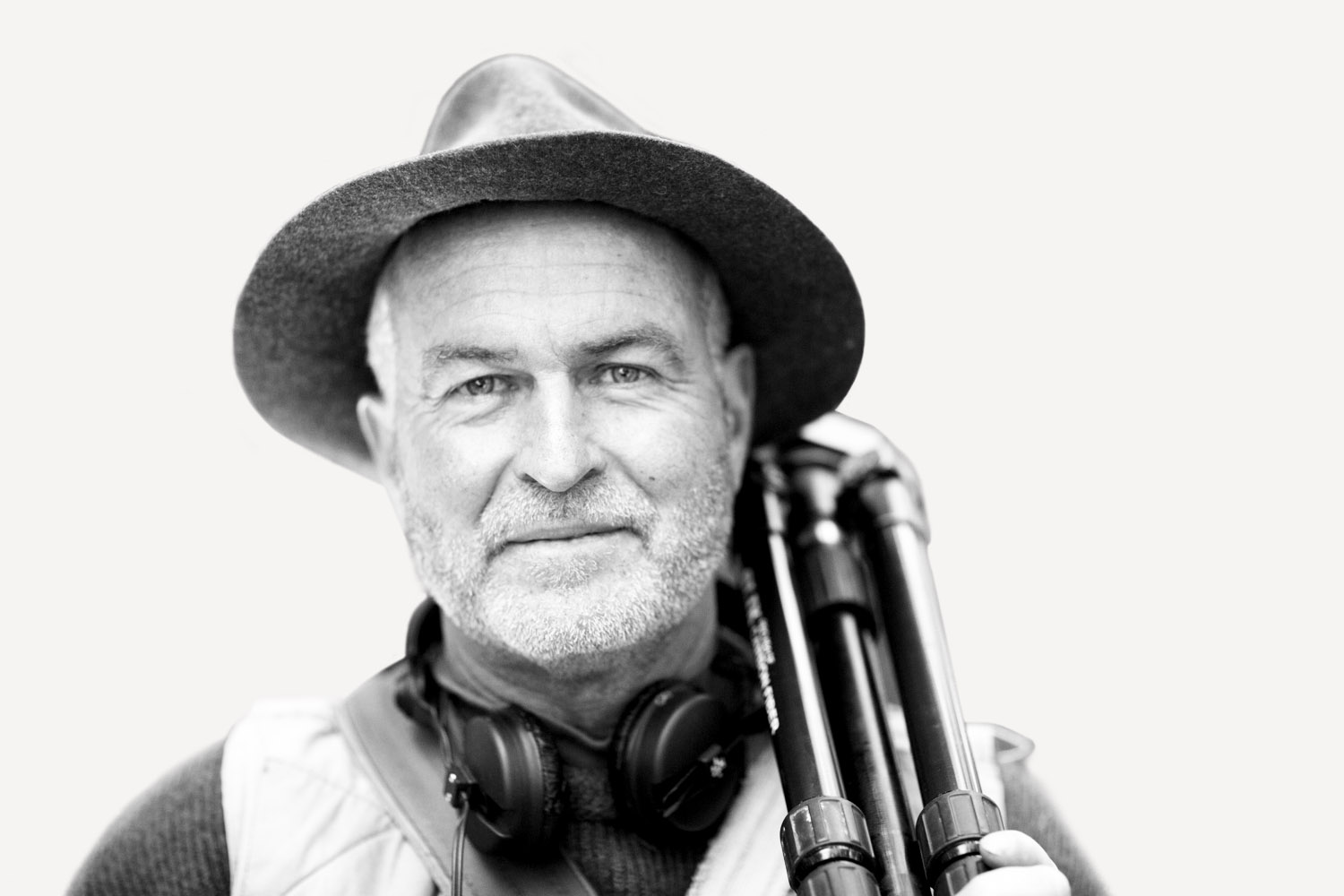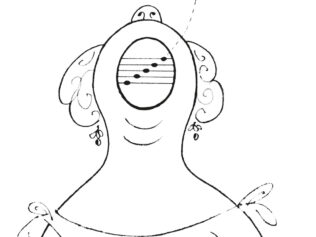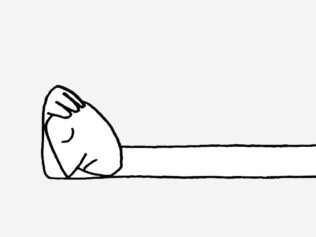
Quietness opens up the world that we don’t hear in our everyday lives. That’s what makes it so precious. Maria Hawranek talks to Gordon Hempton, an acoustic ecologist who has circled the globe three times in search of nature’s rarest sounds.
Maria Hawranek: Has any sound especially surprised you?
Gordon Hempton: Melting snow. It’s a beautiful sound. I found it only because John Muir wrote about it. I doubted that he was being accurate in his description – I suspected that he was using his poetic license to, as Mark Twain would say, improve on the truth. But then I went up and recorded melting snow, and of course, it was just fantastic. Since then, whenever I can, I record melting snow just one drip at a time.
And the spruce logs on beaches?
A different kind of music, but definitely not random and really incredibly beautiful. It’s nature’s largest violin. John Muir, whom I mentioned, was a naturalist in the 1800s. I spent two years studying his life and quickly learned that he was quite possibly the greatest nature listener at a time when the Earth was most musical. He became a teacher for me. He was asked to join the fight to create Yosemite National Park. Muir was a man of the mountains, not a man of politics, so he hiked up into the mountains to spend a night at Soda Springs. In the morning, he woke up and decided he would join the effort. I decided to go to the same place, because I wanted to hear what he had heard that convinced him to come out of the mountains and join the political fight. I went there on a full moon winter’s night. It was absolutely beautiful and the circumstances turned out to be very favourable, because there was a renegade bear that had frightened all the campers, so they all left. Even the ranger was headed off in the other direction.
Weren’t you scared?
I thought: Oh, this is great, I’m going to have the whole place to myself, the bear won’t bother me. And it didn’t. I was just standing there, you know, listening to this very faint wind through the pines and not noticing anything. I was a little bit perplexed: was it the silence that inspired Muir to change his life and join politics? And then I thought, well, he slept like everybody else sleeps, laying down on the ground. So I laid down on the ground, and that’s when it all happened. When I got my ear within a quarter inch of the ground – oh, my God. It was a concert. All the little bubbling and all the little air vents that were streaming out of the ground had so many rhythms, so much music. And that song at times even plays tunes similar to horns, to trumpets. All without human intention. So I recorded it. Soda Springs is just a phenomenal document of the Earth’s living music. If I were to choose another one, it would be the cricket recording that I made in eastern Washington. There are only two sounds that occur during this recording. One is the low rolling of distant thunder: it goes ‘boom’. And then there’s a cricket that shrills ‘grr, grr’. It shrills in high frequency. These two performers are just so spacious. It’s listening to such a grand event, so simple and so complete. I imagine it’s a lot like what a rock climber experiences when they’re on the side of El Capitan. They’re not thinking about what they did yesterday, what they’re going to do tomorrow.
The places you describe are quiet. But there’s so much activity going on there!
Silence is not the absence of sounds, but the presence of them. Silence then is the absence of noise pollution. I define noise pollution as the presence of often relatively loud, low-value information that denies us access to often relatively soft, faint, high-value information. The number one source of noise pollution is transportation. 20 to 30 years ago, the general thinking was: you need to protect yourself from noise or you’ll lose your hearing. Now we know noises even at levels far below those that will impact your ability to hear and can cause increased risk of cardiovascular diseases. You should always be able to hear your footsteps and the footsteps of people around you. If you can’t, you’re probably suffering some kind of health impact. Which can be reversed through exposure to quiet.
But apparently quietness is going extinct.
In the 40 years that I’ve been seeking out quiet places in nature in order to perform my job as a sound tracker, I have seen the shortening of noise free intervals – and in most circumstances, the absolute loss of quietness. In so many of the locations that I’ve recorded, there’s now this constant droning of machines, of transportation, of irrigation systems, of planes not only taking people, but planes applying pesticides, of distant railway trains that are now carrying more loads of freight. The world is growing fast and the economies are growing fast and everything is getting shipped. Marine traffic alone – 400% growth! It has quadrupled in the last 20 years.
Can you tell me about any specific place that has changed in that way?
Take Sinharaja Forest Reserve in Sri Lanka. I was there in 1990. I don’t remember ever hearing a car or a plane. My microphones are so sensitive that they reach out for miles and miles in every direction, so it is a very heightened sense of reality. Once I witnessed a school field trip. At the front was a Buddhist monk wearing an orange robe, and behind him followed about 30 schoolchildren. They walked past me within 100 feet. Not one of them was talking, not one of them was arguing or pushing each other – they were just all with smiles and peaceful, flowing through the Sinharaja. Three years ago, I wanted to return there and record the pure sounds of nature, but the ornithology expert who gives tours to that location said it would not be possible, because the forest reserve has been reduced to too small an area. I went to Google Earth and saw that indeed the forest had been cut; that the area had been reduced.
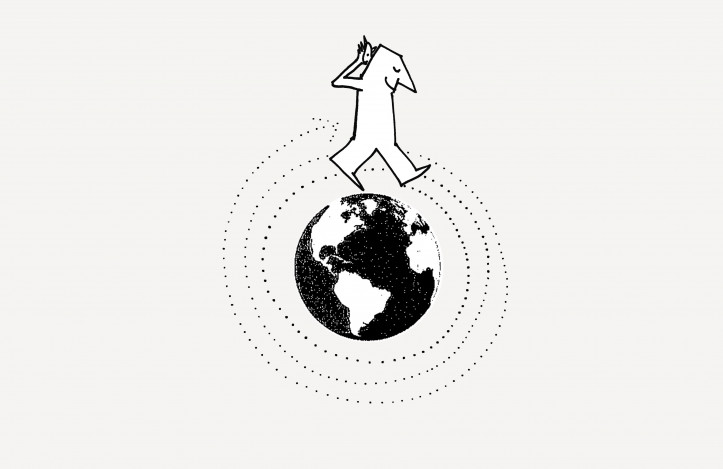
“One Square Inch of Silence” in Olympic National Park also disappeared. You had set it yourself.
Back in the year 2000, I consulted with the National Park Service about the urgent need to have quiet parks. Natural, quiet and natural soundscape were and are listed as natural resources that need to be preserved, protected and managed. But there’s no budget for that. There is not one designated quiet place in the United States national park system, and the parks do not have any authority over the airspace above them. In 2005, I actually designated one square inch of silence at Olympic National Park with little red rope. Then I began writing a book, which was published in 2010. Everybody thought that protecting silence was a great idea, a lot of people applauded, but still there was no money.
Why?
“One Square Inch of Silence” has a noise-free interval of only about 10 minutes. In 2005, it was more than an hour. We’ve had a 30% increase in jet traffic in recent years, and the Navy is now using the area for electronic warfare exercises, flying thousands of flights above Olympic National Park and adjacent areas with some of the world’s loudest jets.
For 13 years you fought for quiet in Olympic National Park, but you’ve lost. Was it painful?
I asked myself, OK, what is there to learn? Why should somebody in Poland, for example, or even in California hear about preserving a place in Washington state? And then I realized: all of us have a right to quiet. This is an essential human need. We need quiet to remain healthy, to remain balanced, to remain in touch with who we are. My mistake had been to choose only one place – this should have actually been a worldwide social movement. Hence Quiet Parks International.
What are the criteria for a quiet park?
Every place on planet Earth does receive noise pollution at some time during the day. We’ve identified over 260 places that are our candidates. The only one certified so far is Zabalo in Ecuador.
I’m sure it’s beautiful.
It took me five days to get from Seattle to Zabalo, which, when you consider it, is pretty quick. There’s the sound of the jet, the sound of people at a busy airport, there are all these sounds as I travel in a car and then in a motor boat and in a paddle canoe and eventually just on foot. You can hear the speed of life beginning to slow down. And I can finally hear my own footsteps, not my voice. But still, I was thinking with words. I was thinking: Oh, that’s so beautiful, I will take a picture. Or: I can hear for, I guess, eight kilometres. To put it differently, I was taking this raw experience and forcing it into words. But after a week there was a little bit of bump here. I stopped thinking: Oh, I wonder what’s going to happen next. When it was raining and when I was seeing the beauty of the water rolling off the leaves, I wasn’t saying to myself: Isn’t that beautiful? I just felt the beauty. I left the words behind and I just started feeling the place and observing so much detail in a very complex ecosystem. Because of that, I became familiar once again with myself. I took the quiet back to Seattle and continued becoming more fluent in my original language of emotions rather than words. When you meet another person who is also fluent in their feelings, then you can have a very nice conversation without words, just listening to what they say with their emotions.
You call the quiet places ‘the acoustic sanctuaries’. Are there any places in Poland that can be considered candidates for quiet parks?
Yes, there is Białowieża, a beautiful place. I’ve looked at that location and it’s possible that it could become a quiet park. I have yet to study the air traffic over there, but the air traffic should be rather thin. Please let your readers know that we are a non-profit, and no one member of our team is paid. Everybody does it without expecting social recognition or anything. They’re doing this just because they believe in the value of quiet. Anyone in Poland who donates to Quiet Arts International can comment that it’s for Białowieża – if we raise money, it would become possible for us to send our certification team there.
So the idea is that you find these rare, quiet places, certify them, and then invite the tourists? That sounds like a recipe for destruction.
The systematic extinction of quiet places has been occurring anyway, because quiet places have not been recognized as such in the 40 years that I’ve been seeking them out in order to perform my job as a sound tracker. 10 years ago, there were 12 quiet places in the United States. I’m guessing today there’s about eight. Again, take Sinharaja Forest Reserve in Sri Lanka. Back in 1990 the quiet was a part of its value, but it wasn’t formalized. If it had been officially declared a quiet place, then whatever changes would occur, people would ask themselves: what will the impact be on the quietness? But that didn’t happen. The children who were on the school trip with the monk are now adults. They remember the quiet, they can use the word ‘quiet’ in its true meaning. But for their children this word is now just a placeholder. It’s almost as if we’re playing a Scrabble game rather than truly talking about what is meaningful. The depths of life are disappearing. The level of awareness is disappearing.
We live in a world dominated by visual experiences. Perhaps sounds simply aren’t that important to us?
Yes, lots of people say: what’s the problem? The national park is still green, it still looks good in the photos, I can take my selfie with the mountains and everything. I’m being accused of talking only about the noise pollution, of being too sensitive. All right, but if vision is so important, why are my eyes only in the front of my head? I only get visual information in one direction. And I can close my eyes, I can totally cut it off at any time.
And you can’t close your ears.
Exactly. And my ears are on the side of my head. Sound is reaching my brain 24/7. It was important that we were able to hear. Sound is created by events. We needed to stay tuned into the events that were happening in our immediate surroundings – otherwise we wouldn’t have survived.
Our ears are supposedly tuned to a certain frequency, just like a musical instrument.
The range of human hearing is pretty good. It’s between 20 and 20,000 vibrations per second. The low frequencies, those 20 vibrations per second, that’s always simple information, but it can travel great distances. And then we get up to the very high frequencies. Because of their quickness, they can carry high resolution data. We’re most sensitive at 2500 hertz. When I play some sounds to people, when we get to 2500 hertz they start to cover their ears because they experience it as loud and painful, even though it’s the same acoustic energy. It begs the question: why have we evolved like that? Well, 2500 hertz is approximately the frequency of a baby’s cry. So we can hear a baby crying from a great distance in order to reach it and save it. But it’s also the frequency of frogs, insects, birds, songs, howler monkeys. If we listen to the dawn chorus, the song at sunrise, and we record all the birds together and do a spectrum analysis, it peaks at 2500 hertz. And birdsong is the primary indicator of a habitat prosperous to humans. Because if the birds are singing, there is food, water, energy. You know what’s curious?
What?
I’ve made more than 60 albums and the bestselling ones are those with recordings from places where people would prosper in. So all you need to do to prosper in your world and make correct decisions about your life is simply to listen and notice how you feel. As you explore the world around you, you make those choices towards what feels right. You don’t need to ask yourself why. Just trust your instincts. All roads lead to quiet.
How old were you when you first heard it?
I was 27. I was driving from Seattle to Madison, Wisconsin, because I was going to study plant diseases there. My specialty in botany was alpine ecology and taxonomy. And, you know, all my adult life I had been camping, backpacking. I had been close to nature, and I know that I had been in some quiet places, but I can’t tell you today what any of them sounded like. Because I was not listening.
What changed?
It was a very special occasion. Because first of all, I was very tired from driving. I decided to just lay on the ground, doing nothing. And it felt so good. Then I heard the thunder roll. At first I thought: I need to go back to the car. But then I said to myself: No. I’m not doing that. It’s a warm late summer day, I need a bath anyway. You know, just let it rain. And as the thunder roared, I noticed that its echo revealed the landscape all around me, even though my eyes were closed. The orchestras of the insects were just beginning to quiet down as the result of lower temperatures. I thought, wow, I’m surrounded by such life. It was like swimming in a lake in diving googles for the first time. I was completely transformed. I had a new measure of authenticity, I knew what it was to truly be alive. And so even though I had planned on being botanist, I decided to drop that and instead focus on sound.
Yours is an unusual profession.
And it requires money. I had student debt, and I became a bike messenger. Not because I wanted to be a bike messenger – I just thought: well, I’ve got to get some kind of a good paying job while I figure out who I am. I have a college degree, I’m a smart guy, I can adapt, but before I actually interview for some serious job, I’ll go for a practice interview, just to kind of loosen up for a more professional one. And so I went for the interview for this bike messenger job and the guy says, OK, here’s your bike. It was a hard, physical job, and that attracted me, because I needed something hard to get me back in my body after living an academic life and focusing only on my brain. And I was able to earn money to continue to go to nature and record sounds. But also I had to ride very fast, because you get paid by the delivery hour, and when you’re hurrying and not listening, you can get hit by a car. Every time I got hit by a car, it was because I hadn’t been listening. I realized I have to listen the same way that wild animals listen in order to survive. And then I would take those same skills and go into nature and be able to do my work much better.
Are you a good listener?
No, and if any of your readers says about themselves: Oh, I’m a good listener, I’d like to tell them right now: No, you’re not. That very belief is keeping you from becoming the listener you were born to be. Do you give great importance to the words the people speak? Or are you listening to the intonations, the strains in their voice? Because that is the crucial difference. The true meaning of what people are saying is how their vocal chords are expressing what’s inside them. Forget about the words. By becoming a better listener of nature, you will become a better listener of your partner, of your loved ones, and even of strangers that you meet for the first time.
And how can one become a better listener?
Start with a simple exercise. When you’re inside the house, ask yourself: what is the faintest sound that you can hear? And what is the farthest sound that you can hear? It’s like a meditation. Don’t try to listen – just feel. Allow the sound to enter you.
Parts of this interview have been edited and condensed for clarity and brevity.
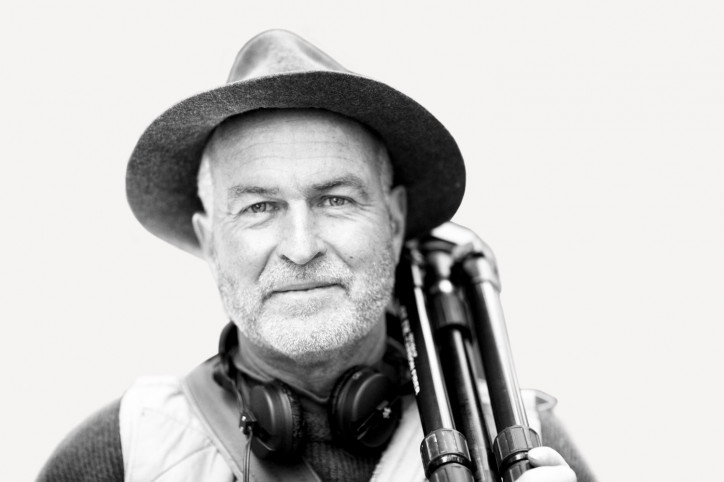
Gordon Hempton:
Acoustic ecologist, founder of Quiet Parks International, an organization that certifies noise-free zones. He’s been travelling around the globe for 40 years, recording sounds. He created “One Square Inch of Silence” and is the subject of the documentary film Soundtracker.
Introduction translated by Jan Dzierzgowski


